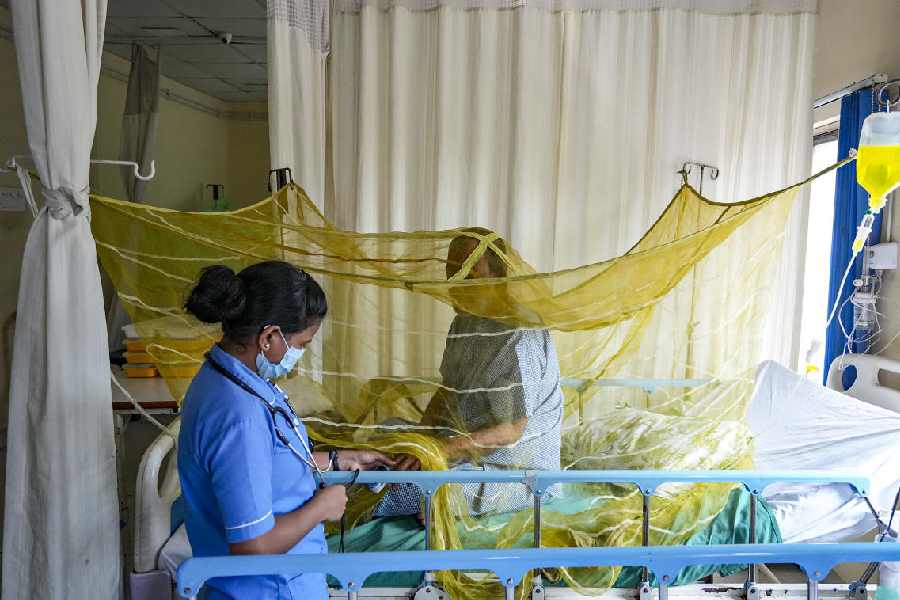The Bengal government will organise a two-day training in dengue management for newly elected rural body members to make them aware of how to go about handling the vector-borne disease.
A source said the decision was taken after a special meeting chaired by chief secretary H.K. Dwivedi on Monday when he sought the adoption of a slew of measures to arrest the rise in the number of Dengue cases across the state.
“Most rural body members, who were elected for the first time, have no experience in combating dengue. Without having prior knowledge about the disease and precautions, it is tough to manage things properly at the ground level.... That is why a dengue orientation programme for newly elected rural body members is being planned,” said a senior state government official.
A source said the rural development department would organise the two-day-long training programmes with the help of health officials in each district in the first week of October.
“The panchayat members will be made aware of a few basic things about dengue. The most important is the use of larvicide chemicals and the proportions in which they are used in solution.... The elected representatives can check whether the vector-prevention teams are using the chemicals properly. They will also be told about potential breeding pockets of Aedes aegypti mosquitoes,” said a health official.
Almost 90 per cent of the rural bodies in Bengal are under the control of the Trinamul Congress which pitched thousands of fresh faces as candidates for the July 8 panchayat polls.
“In most gram panchayats, over 80 per cent of members are new. In many places, the pradhan and upapradhan, who head the rural bodies, are fresh candidates. They are enthusiastic but can’t monitor everything according to guidelines,” said a health official in South 24-Parganas.
When villagers contact panchayat members concerned for their support on health issues, a lack of knowledge on dengue symptoms is often leading to delayed hospitalisation, a source said.
“In the training, we will let the panchayat members know about symptoms of dengue patients and under what conditions they need hospitalisation,” said an official.
The official said the threat of dengue had become a major concern in peri-urban areas which actually came under gram panchayats and were treated as rural areas.
Over 50 per cent of 40,000-odd dengue cases which have already been reported in Bengal are from the rural belt, especially peri-urban areas. North 24-Parganas, South 24-Parganas, Nadia, Howrah and Hooghly districts with more peri-urban pockets reported the highest number of dengue cases.
At Monday’s meeting, the chief secretary called for robust cleanliness drives in rural pockets with a high number of dengue cases.











